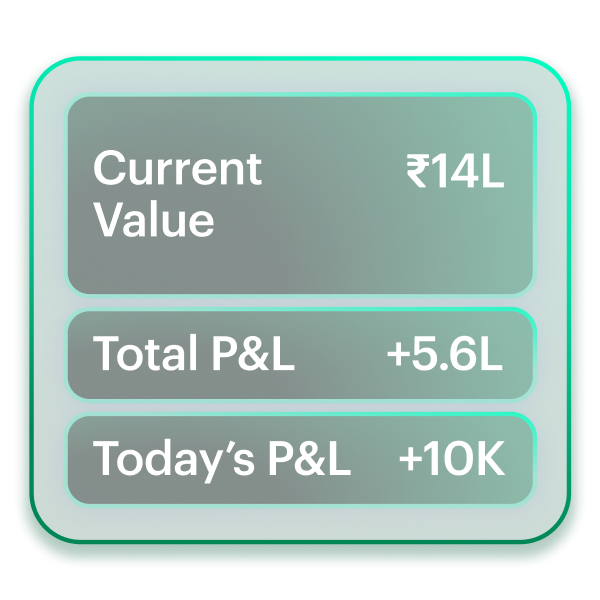Last Updated on May 24, 2022 by
Tax Deducted at Source or TDS is the amount of tax deducted by an employer or an entity upon a payment made to another person. The idea of TDS is to collect tax from the liable entity right at the source. The deducted amount has to be deposited with the Government by the deductor. At the same time, the deductee is supposed to get a TDS certificate to get a rebate.
TDS can be deducted on salary, rent, interest, and even commission payments.
Let us understand the TDS on commission, how it is deducted, and other crucial things about it.
Table of Contents
What is TDS on commission?
Commission or brokerage is a specific amount of money that one receives upon successfully completing a goal or a target. The commission may either be the primary source of income for some people, while for others, this may be additional compensation. Except for specialized and professional services, the payment received directly or indirectly on behalf of another person on all other services and sale of goods is categorized as commission.
Section 194H of the Income Tax Act requires a TDS on brokerage by the person making the commission payment. Any income earned by means of receiving a commission or brokerage is liable for TDS deduction for individuals and Hindu Undivided Family (HUF) in India.
Understanding Section 194H
Section 194H is applicable for any commission or brokerage paid by another person. The Section underlines the tax deduction by a person who pays commission or brokerage to another person. The person making the commission payment is bound by the law to deduct TDS and submit it to the Government if the commission amount paid to a certain person is over Rs. 15,000 in a year.
TDS on commission is supposed to be deducted by individuals and the members of HUFs. However, it must be noted that a HUF member is obligated to pay TDS only if their books are getting audited under Section 44AB. To put it simply, the books of any HUF are audited if their annual income from business exceeds Rs. 1 cr. or yearly income from profession exceeds Rs. 50 lakh.
Section 194H does not apply to all residents and has some caveats. Let’s understand in detail when the TDS is deducted when it is not deducted and certain exceptions.
When is TDS deducted?
As per Section 194H, a deductor is liable to deduct the TDS from a commission payment being made right at the time of crediting the payment in the payee’s account. It must be deducted from the final amount of disbursement.
TDS on brokerage has to be mandatorily deducted by the entity making the payment if the commission amount paid to a specific individual for a year exceeds Rs. 15,000.
Exceptions for TDS deduction
Here is a detailed breakdown of instances where TDS on commission is not deducted:
- The commission on the sale of insurance policies is not liable to TDS under Section 194H.
- Individuals and HUFs who are not required to get their books audited under Section 44AB need not participate in TDS on brokerage.
- Commission paid by an employer to an employee is not liable for TDS deduction under Section 194H but under Section 192 of the Income Tax Act.
- Service Tax payments are not under the ambit of Section 194H and are not TDS deductible.
- If the total brokerage or commission paid to a person in a year does not exceed Rs. 15,000, there is no need for the entity making the payment to deduct TDS.
- All commissions and brokerages paid by BSNL and MTNL to their public call franchise are exempt from TDS deduction as per Section 194H.
- Commission paid to loan underwriters for the transaction of securities listed on the stock market or for public issue of securities is also excluded from a TDS on commission deduction.
- A person or entity is not liable for TDS deduction if obtained a Nil TDS certificate from the concerned authority. Similarly, a Lower TDS Rate certificate from the concerned authority can result in a discounted TDS deduction on commission.
Rate of TDS on commission
After the onset of the COVID-19 pandemic, the Government has revised the TDS rate on commission to 5% from 10% when the payee’s PAN Card is furnished. If there are no PAN details available for the payee, TDS on commission will be deducted at 20%.
Individuals applying for a lower TDS rate on commission will have to fill out Form 13 and submit it to the assessing officer as per Section 197 of the Income Tax Act. In addition to Form 13, the applicant will have to submit their PAN details, income tax returns for 3 yrs, the audited financial report for 3 yrs, TAN, income statement for 3 yrs, e-TDS return for 2 yrs, and estimated and projected income for the fiscal year.
Deadline for depositing TDS on commission
There are two deadlines to keep in mind when it comes to TDS on commission:
- TDS deducted between April and February: Deductor must deposit the deducted TDS with the Government by the 7th of the next month. For example, TDS deducted on 20 July must be deposited with the Government by 7 August.
- TDS deducted for March must be deposited with the Government on or before 30 April.
The takeaway
TDS deduction on the commission has several inclusions and exclusions based on the type of commission paid or received. The key here is to understand where you are positioned to get a better idea of the TDS on commission liability. Consult your CA or tax advisor for intricate planning on TDS.
- SBI Equity Mutual Funds – List of Top Performing Schemes for 2025 - Mar 27, 2025
- Hedge Funds in India: Definition, Types, & Benefits - Mar 27, 2025
- List of Overnight Mutual Funds in India (2025) - Mar 17, 2025




